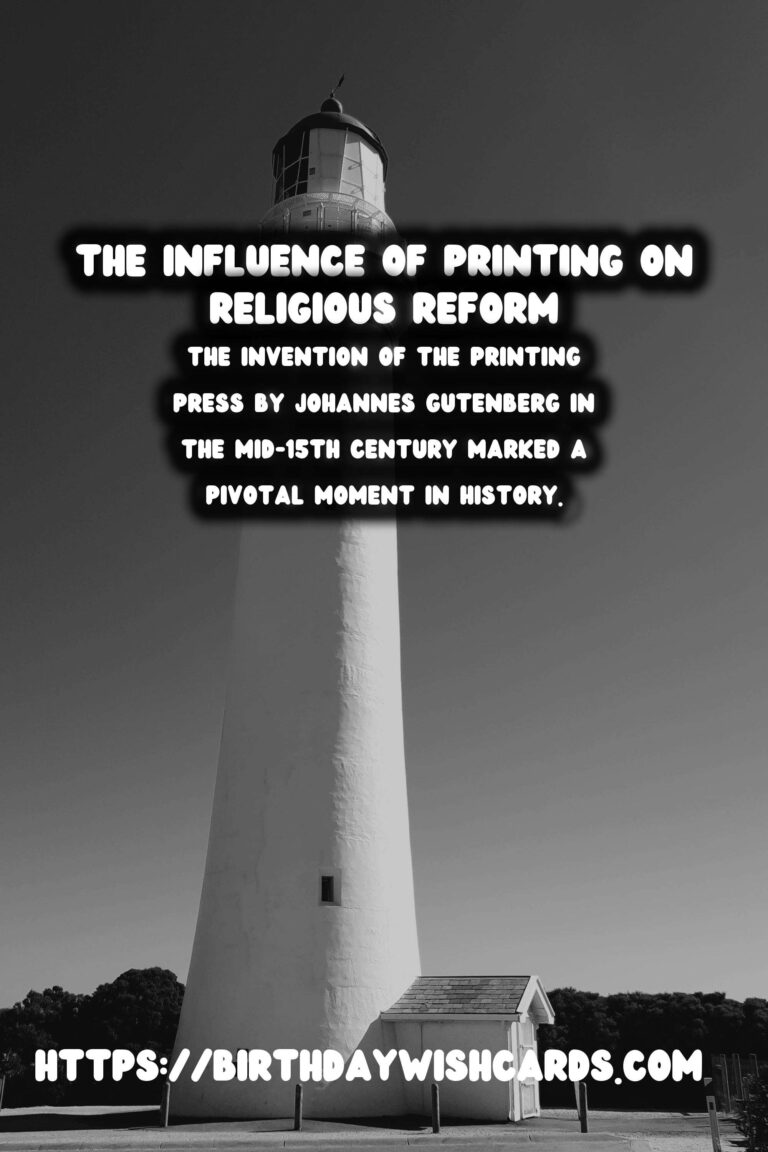
The invention of the printing press by Johannes Gutenberg in the mid-15th century marked a pivotal moment in history, not only revolutionizing the way information was disseminated but also playing a crucial role in the Protestant Reformation. This era of religious, cultural, and social upheaval was significantly influenced by the ability to mass-produce text, which enabled the rapid spread of reformist ideas across Europe.
The Invention of the Printing Press
Johannes Gutenberg’s revolutionary invention around 1440 introduced the world to movable type, allowing for the mass production of books and pamphlets. Prior to this, books were painstakingly handwritten, making them scarce and expensive. Gutenberg’s press dramatically reduced costs and increased accessibility to written material.
The printing press transformed communication. Instead of knowledge being confined to the few who had access to precious manuscripts, the press opened up the world of information to the emerging middle class, laying the groundwork for a more literate and informed public.
The Spread of Reformation Ideas
Martin Luther, a central figure in the Protestant Reformation, famously nailed his Ninety-Five Theses to the church door in Wittenberg in 1517. While this act itself was significant, the subsequent mass printing and distribution of his theses exponentially increased its impact. Without the printing press, Luther’s voice might have remained a mere whisper rather than the rallying cry it became.
The ability to print and distribute numerous copies of texts meant that reformists could efficiently challenge the Catholic Church’s doctrines. In addition, the press facilitated the translation of the Bible into vernacular languages, making Scriptures accessible to the general populace for the first time, further empowering individuals to form their own interpretations of religious texts.
Cultural and Social Impacts
The Protestant Reformation, supported by the power of the press, led to significant cultural and social changes. People began to question the established religious practices and hierarchies that had long been in place. The theological debates and discussions that ensued laid the foundation for religious tolerance and freedom of thought.
Moreover, the press aided in the decentralization of information authority. Previously, the Catholic Church held a monopoly over religious knowledge and interpretation. The press allowed diverse voices and opinions to be heard, fostering a culture of critical thinking and discourse that is a hallmark of modern societies.
The Legacy of Printing and Reformation
The impact of the printing press on the Protestant Reformation cannot be overstated. It set off a chain reaction of religious questioning, enlightenment, and change that has echoed through the centuries. The Reformation paved the way for the Enlightenment, the rise of modern science, and the eventual emergence of our contemporary information society.
The echoes of this transformation are still felt today, as we continue to grapple with the balance between faith and reason, tradition and innovation, and authority and individualism. The printing press was not just a tool of technology; it was a catalyst for transformation.
Conclusion
The history of printing is intricately linked with the Protestant Reformation, marking a significant advancement in human history. By democratizing access to information, the press inspired changes that resonated far beyond the boundaries of religion. It was the cornerstone upon which modern communication was built, and its role in the Reformation showcases its power to alter the course of history.
As we look back, the relationship between these two historical phenomena continues to be a testament to the power of technology to drive social and religious change. The legacy of the printing press lives on as a symbol of enlightenment, education, and empowerment.
The invention of the printing press by Johannes Gutenberg in the mid-15th century marked a pivotal moment in history. The Protestant Reformation, supported by the power of the press, led to significant cultural and social changes. 
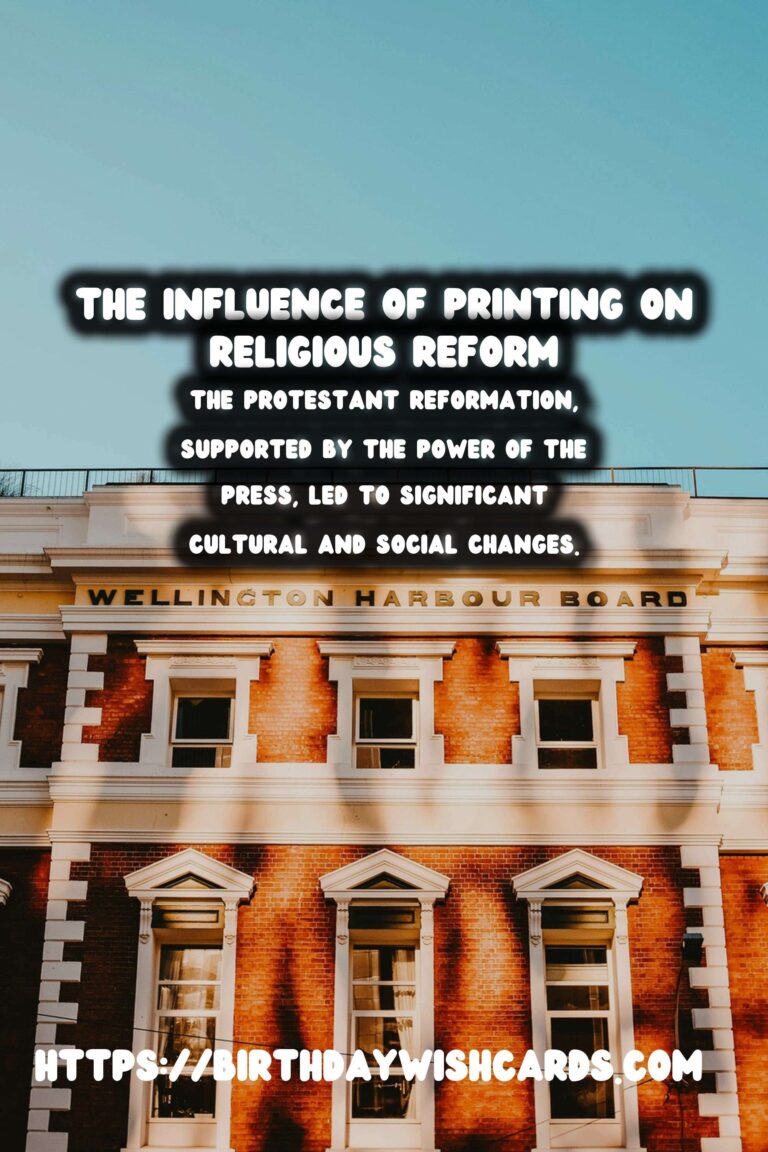

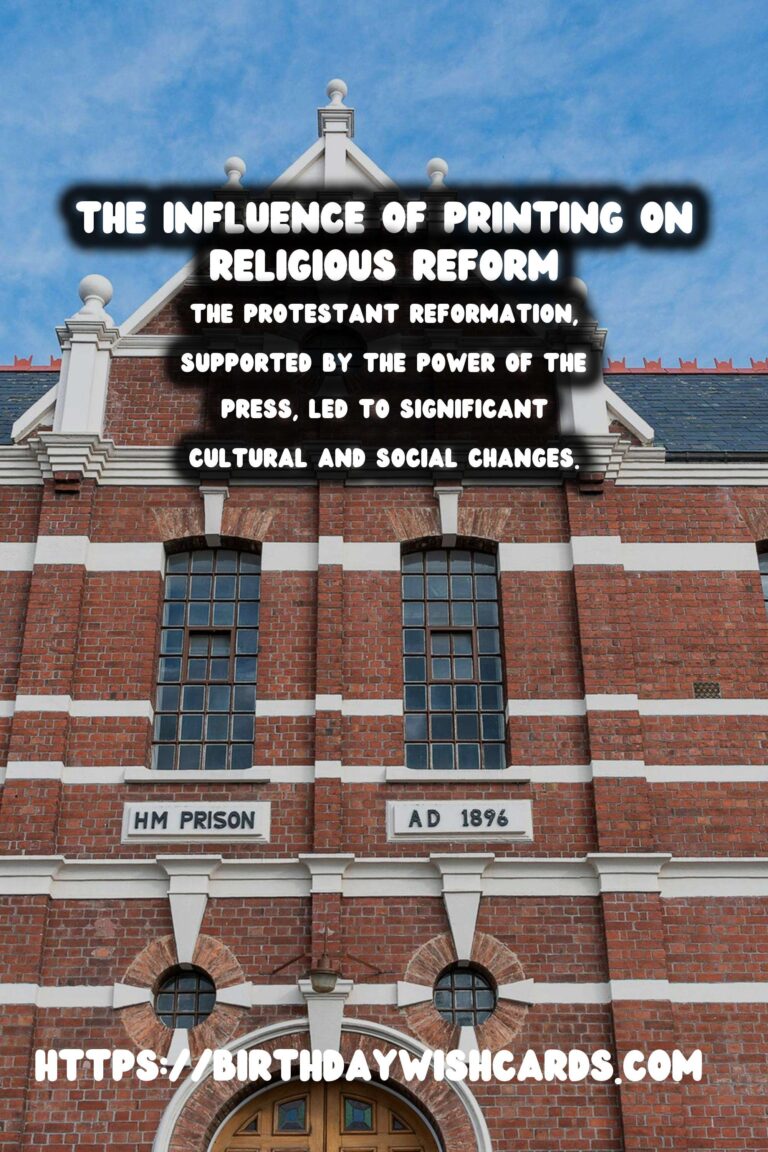
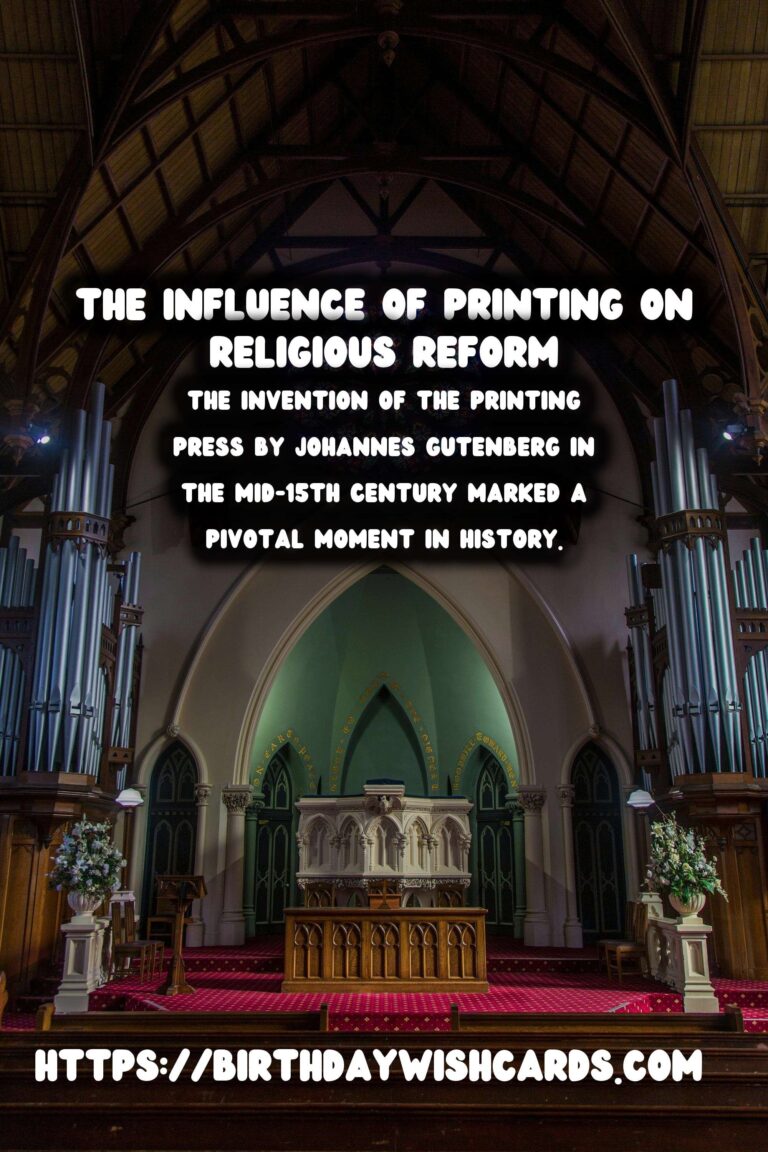
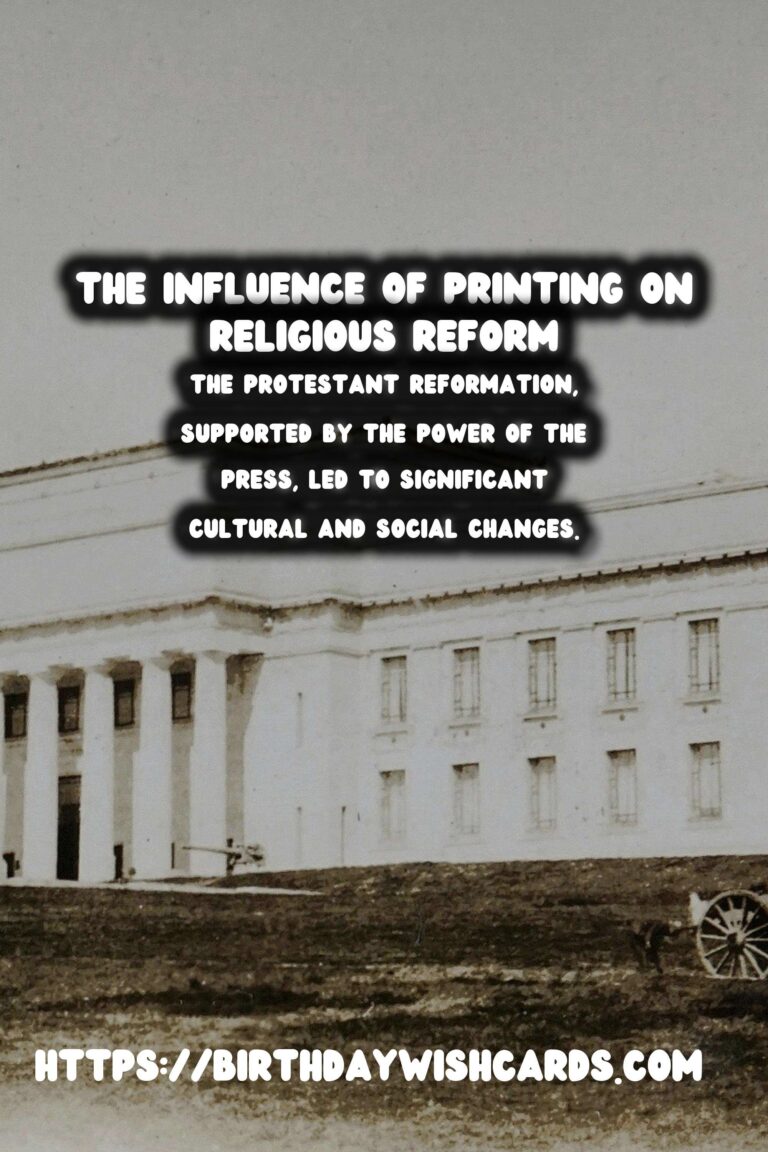
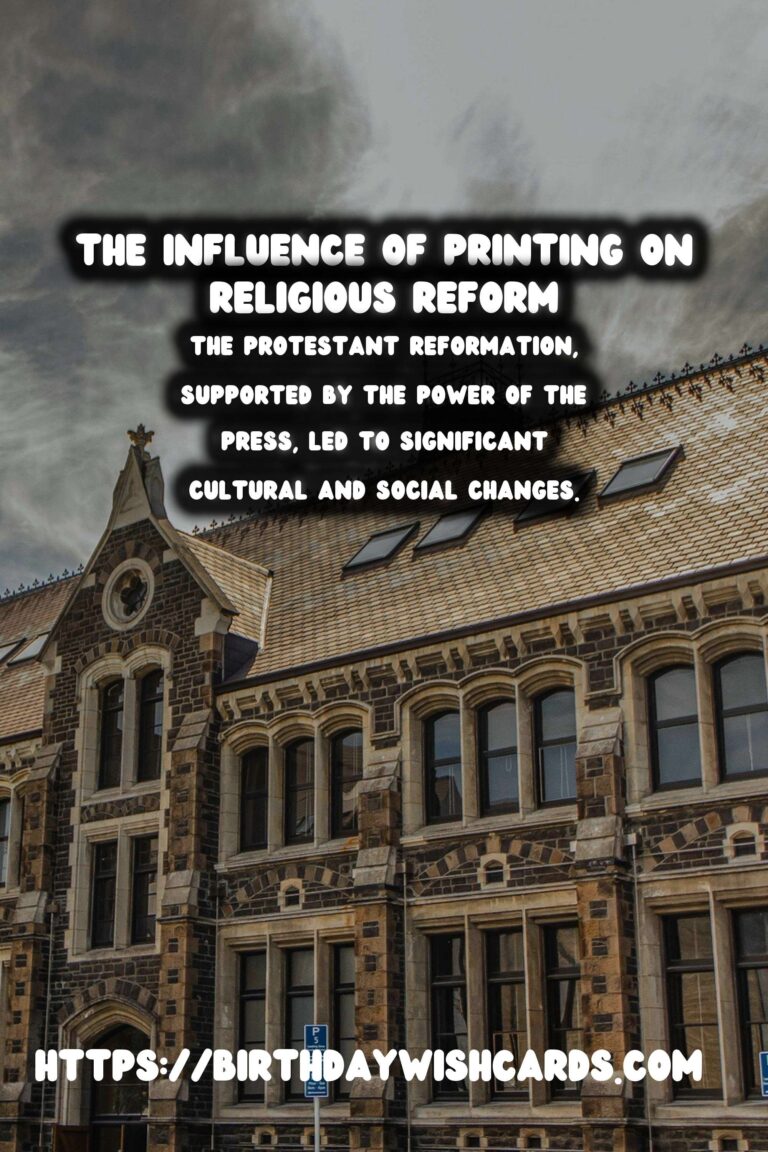
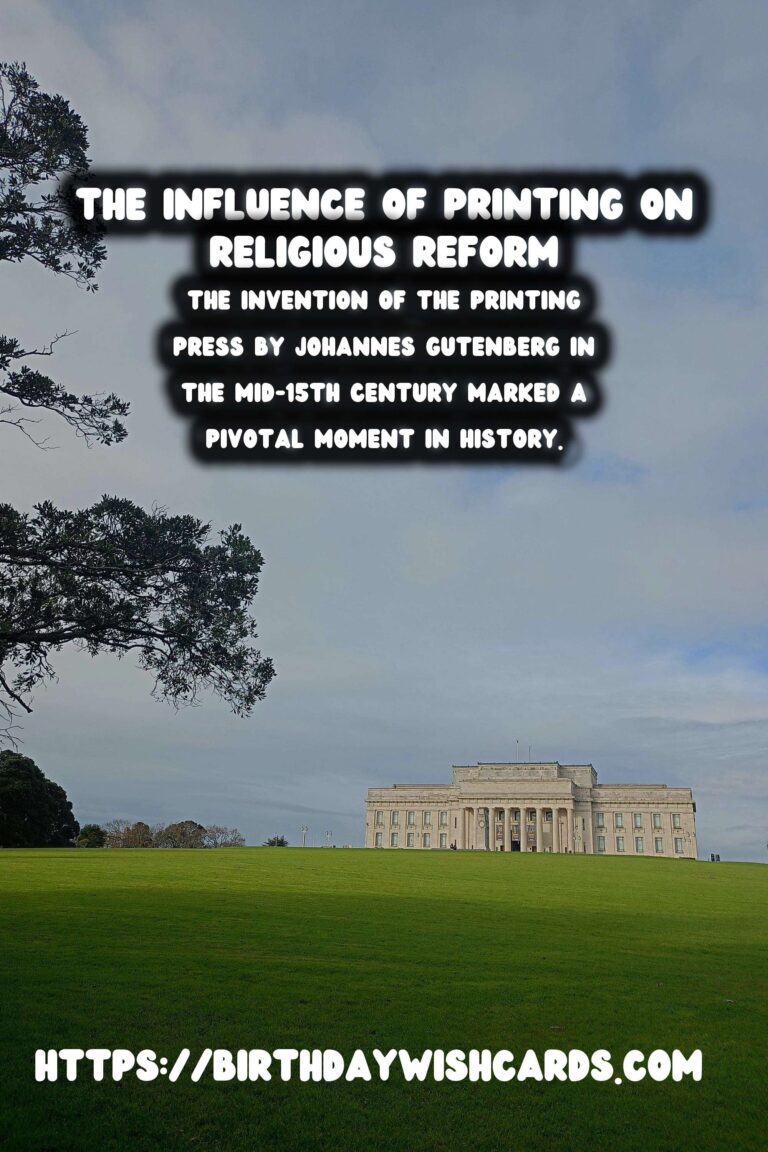

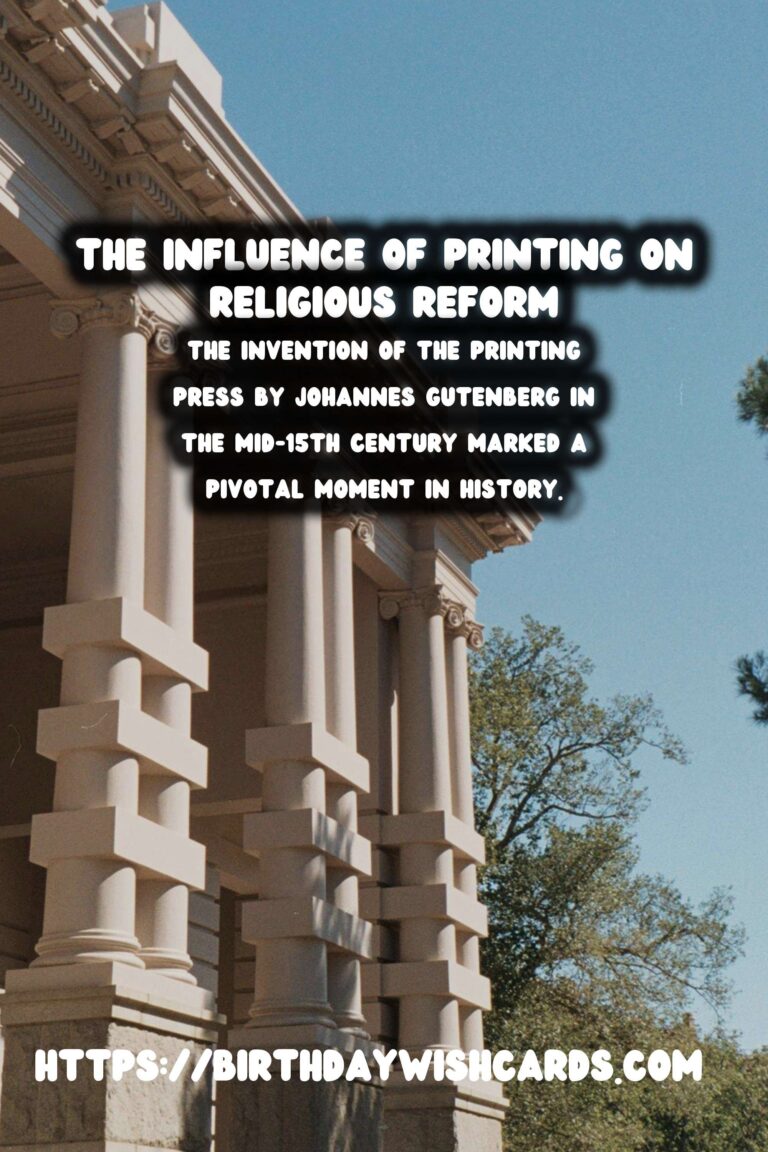
#PrintingHistory #ProtestantReformation




